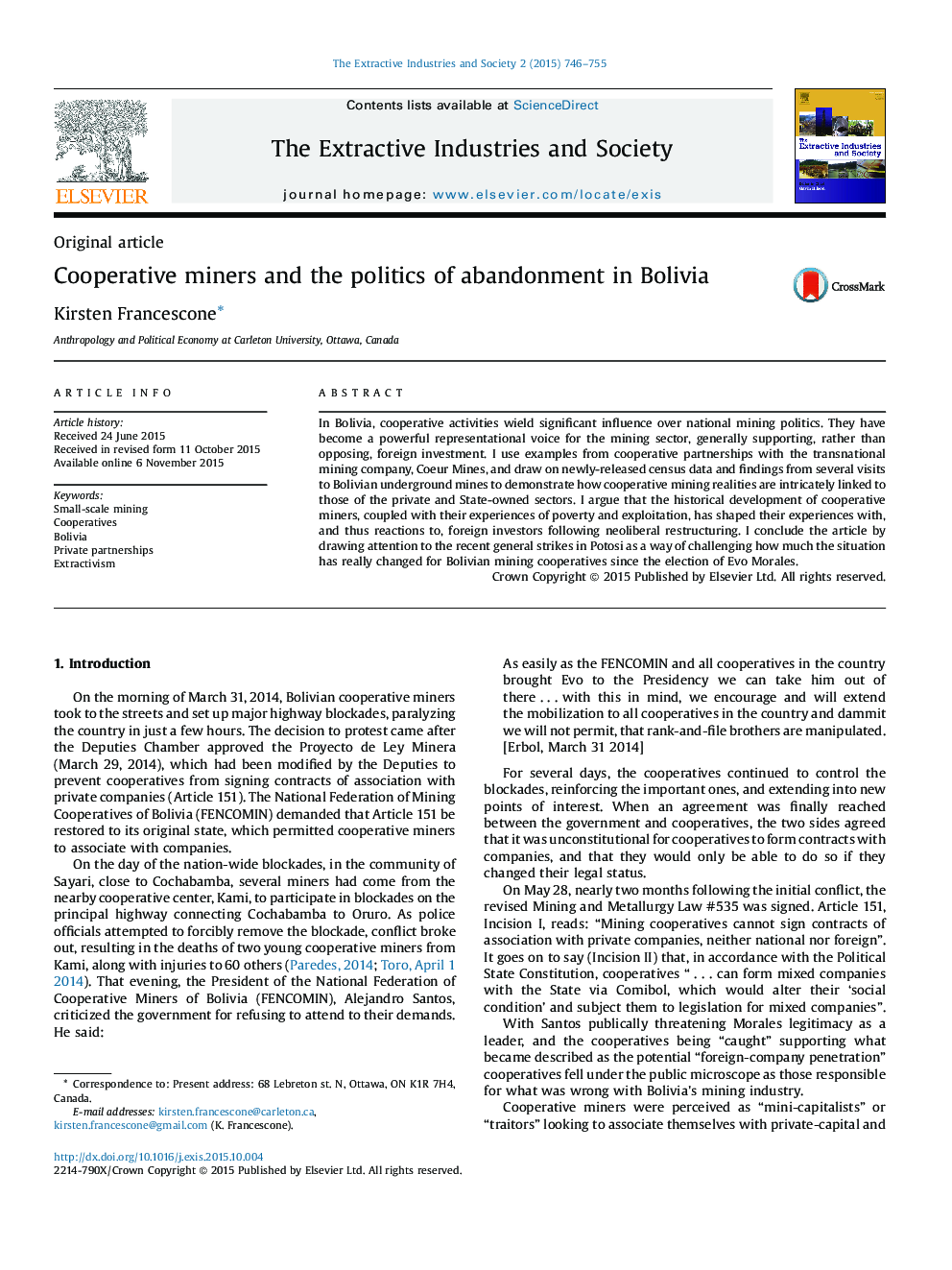| کد مقاله | کد نشریه | سال انتشار | مقاله انگلیسی | نسخه تمام متن |
|---|---|---|---|---|
| 1047552 | 945264 | 2015 | 10 صفحه PDF | دانلود رایگان |
• Cooperatives have co-existed with private capital for over half a century.
• The label cooperative does not express the kinds of work that occurs in them.
• Cooperative mining centers represent zones of state abandonment.
• Transnational mining firms benefit from their relationship to the cooperative mining sector.
• Cooperatives ally with transnationals in part because they have been forgotten by the State.
In Bolivia, cooperative activities wield significant influence over national mining politics. They have become a powerful representational voice for the mining sector, generally supporting, rather than opposing, foreign investment. I use examples from cooperative partnerships with the transnational mining company, Coeur Mines, and draw on newly-released census data and findings from several visits to Bolivian underground mines to demonstrate how cooperative mining realities are intricately linked to those of the private and State-owned sectors. I argue that the historical development of cooperative miners, coupled with their experiences of poverty and exploitation, has shaped their experiences with, and thus reactions to, foreign investors following neoliberal restructuring. I conclude the article by drawing attention to the recent general strikes in Potosi as a way of challenging how much the situation has really changed for Bolivian mining cooperatives since the election of Evo Morales.
Journal: The Extractive Industries and Society - Volume 2, Issue 4, December 2015, Pages 746–755
